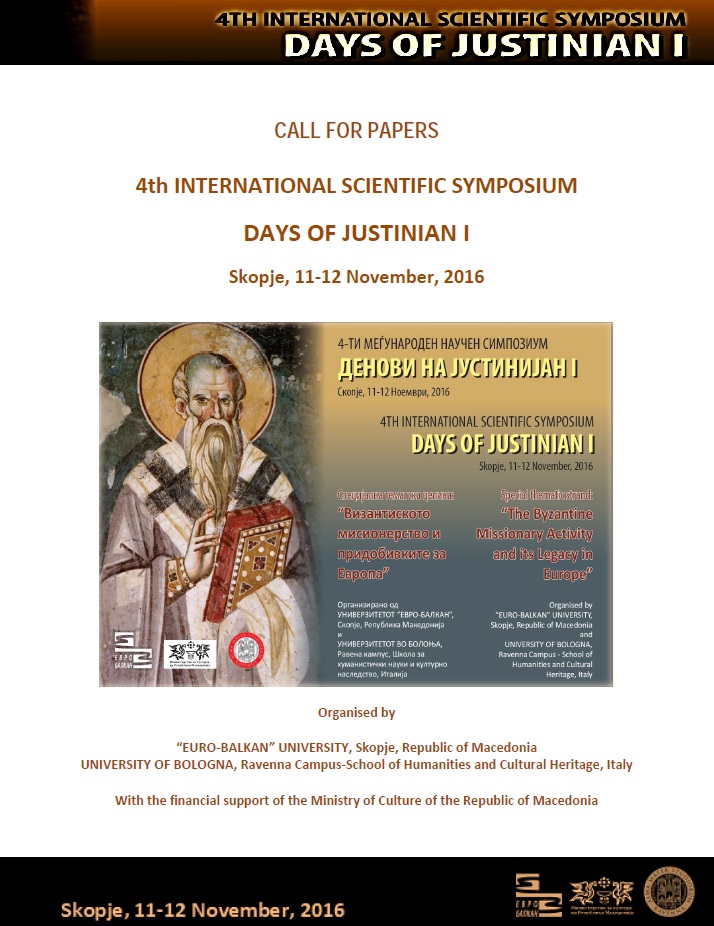Conférence « Fortune et Réception des textes oraculaires dans l’Antiquité tardive et le monde médiéval » – Université libre de Bruxelles
Two-days conference, sponsored by the U.L.B. (Chancellor and Faculté de Philosophie et Sciences sociales) and the FNRS, to be held on Monday 5 and Tuesday 6 September at the Université libre de Bruxelles, Campus Solbosch, salle AY2 107 (free access). The programme is the following:
MONDAY 5 SEPTEMBER
9.00-9.10
Presentation, Aude Busine (Université libre de Bruxelles)
9.10-9.30
Introduction, Lucia Maddalena Tissi (Université libre de Bruxelles)
Chair: Aude Busine (Université libre de Bruxelles)
9.30-09.55 Crystal Addey (University of St. Andrews, U.K.), Oracles of the Fire: the Ritual Formation of the Chaldean Oracles
09.55-10.05 Discussion
10.05-10.30 Helmut Seng (Universität Konstanz), Editorisch-kritische Überlegungen zu den Chaldaeischen Orakeln: Die Sammlung des Psellos
10.30-10.40 Discussion
10.40-11.00 Coffee break
11.00-11.25 Nicoletta Brocca (Università Ca’ Foscari, Venezia), Fortuna e ricezione dell’acrostico sibillino in Occidente tra tarda antichità e medioevo
11.25-11.35 Discussion
11.35-12.00 Chiara Ombretta Tommasi Moreschini (Università degli Studi di Pisa), Greek Oracles in Latin world. Three late-antique cases
12.00-12.10 Discussion
12.10-12.35 Angel Ruiz Perez (Universitad Santiago de Compostela), Rebukes in Oracles in Late Antiquity
12.35-12.45 Discussion
12.35-14.15 Lunch
Chair: Alain Delattre (Université libre de Bruxelles)
14.15-14.40 Regina Fichera (Università degli Studi di Firenze), Le θεῖος φιλόσοφος et les oracles dans les Vies de philosophes et de sophistes par Eunape de Sardes
14.40-14.50 Discussion
14.50-15.15 Sara Lanna (Università degli studi di Roma “Tor Vergata”), Alexander the Great and the oracle of Ammon: philological and historical-religious remarks
15.15-15.25 Discussion
15.25-15.50 Claudio Schiano (Università degli Studi di Bari), Oracoli pagani e predizione del futuro: un tema scomodo nell’Alessandria del VI secolo
15.50-16.00 Discussion
16.00-16.20 Coffee break
16.20-16.45 Christine Hecht (Universität Tübingen), Eusebios liest Porphyrios. Fragmentierung und Kontextualisierung der « Orakelphilosophie »
16.45-16.55 Discussion
16.55-17.20 Giovanni Serafini (Università degli Studi di Firenze), Piero della Francesca and the Holy Cross : a patristic reading of the frescoes in Arezzo
17.20-17.30 Discussion
TUESDAY 6 SEPTEMBER
Chair: Regina Fichera (Università degli Studi di Firenze)
9.30-09.55 Gianfranco Agosti (Sapienza University of Rome), The Context and Reception of an oracle in Socrates of Constantinople
09.55-10.05 Discussion
10.05-10.30 David Hernández de la Fuente (UNED, Madrid), Greek Poetry in Oracular Style and Politics in Late Antiquity: some case studies
10.30-10.40 Discussion
10.40-11.05 Laura Carrara (Heidelberger Akademie der Wissenschaften / Karls Eberhard Universität Tübingen), Excerpts from (Christianized) Pagan Wisdom : the Tübingen Theosophy
11.05-11.15 Discussion
11.15-11.35 Coffee break
Chair: Lucia Maddalena Tissi (Université libre de Bruxelles)
11.35-12.00 Enrico Magnelli (Università degli Studi di Firenze), Crooked oracles or naive inquirers? Theodore Prodromus, RD 9.184-240
12.00-12.10 Discussion
12.10-12.35 Giulia Maria Paoletti (University of Oxford), Between Vergil and Metaphrastes: the fate of a collection of oracles
12.35-12.45 Discussion
12.45-14.00 Lunch
14.00-14.25 Georgios Tsiaples (Aristotle University of Thessaloniki), Oracles and Prophecies connected with the pagan remains of Constantinople
14.25-14.35 Discussion
14.35-15.00 Chiara Garganese (Università degli Studi di Firenze), Sculpting oracles, an initiatory path in Siena Dom
15.00-15.10 Discussion
15.10-15.30 Conclusions et discussion, Aude Busine et Lucia Maddalena Tissi
We invite anyone who is interested to join the conference. Please do not hesitate to contact Lucia Tissi if you have any further questions: luciamaddalenatissi@gmail.com OR ltissi@ulb.ac.be


